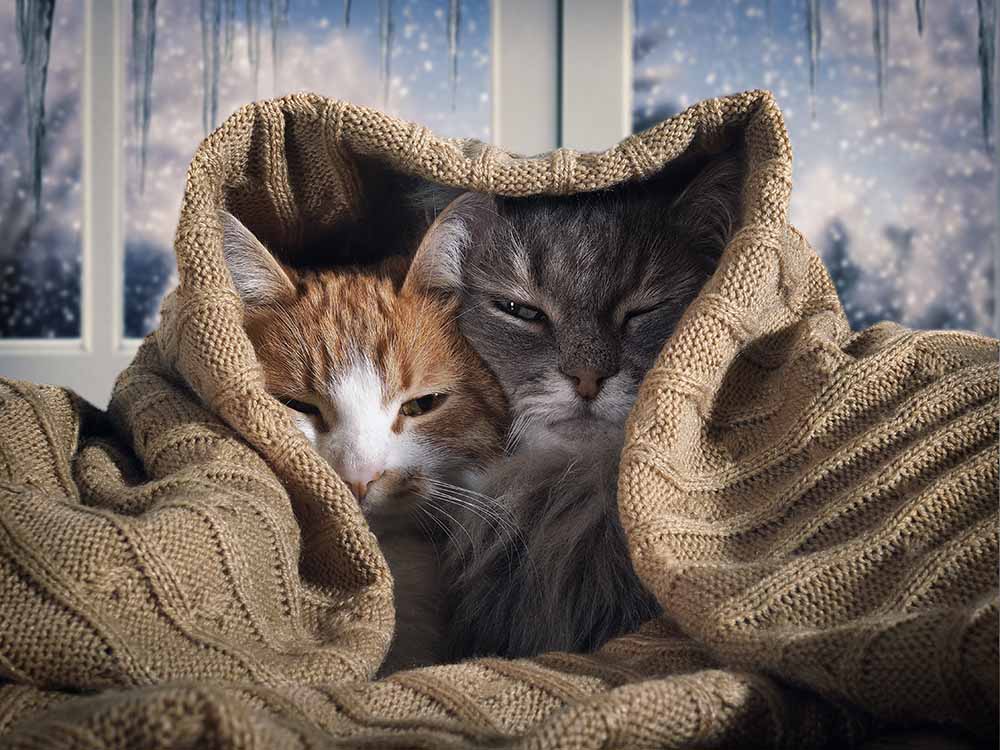What Happens to Bonded Cats When One Dies?
- August 30, 2025
- Celebrations of Life

Cats are known for their independence, but when they form a bond with another cat, that connection can be incredibly deep. Bonded cats often become inseparable, sharing sleeping spots, grooming each other, and sometimes even developing unique communication methods. But what happens when one of the bonded pair dies? Do cats grieve? How can we, as pet owners, support the surviving cat through this loss? Let’s explore what happens to bonded cats when one dies, how you can help them cope, and why pet memorials can offer comfort during this challenging time.
Do Cats Grieve When Their Bonded Partner Dies?
Yes, cats can absolutely grieve when their bonded companion dies. While each cat is different, many will exhibit behavioral changes after the loss of a close feline friend. This grief may manifest in various ways, and understanding these signs is crucial for providing comfort and support to your surviving pet.
Some common signs of grief in cats include:
- Loss of Appetite: The surviving cat may lose interest in food, reflecting its emotional turmoil.
- Increased Vocalization: Some cats become more vocal, as if calling for their missing friend.
- Withdrawing: A grieving cat may become more reclusive, spending time hiding or avoiding interaction.
- Changes in Grooming: Some cats may stop grooming themselves, while others may overgroom as a coping mechanism.
These behaviors are a way for the surviving cat to express its confusion and sadness. It’s important to remember that while humans have verbal outlets for their grief, cats rely on behavioral cues to communicate their emotions.
How Long Do Cats Grieve?
Just like humans, the grieving process for cats varies in length. Some cats may adjust within a few weeks, while others might show signs of mourning for months. It’s vital to be patient and understanding during this time. One way to honor the bond your cats shared is by creating a Pet Memorial. Memorials can be a meaningful way to acknowledge your pet’s grief and allow you to reflect on the bond you shared with both cats.
You can learn more about pet memorials and how they offer healing and closure by exploring our homepage.
Helping a Grieving Cat Cope With Loss
While the grieving process is different for every cat, there are several ways you can help ease your pet’s distress after the loss of a bonded companion.
- Maintain Routine: Cats thrive on routine, and a disruption caused by the loss of a companion can make them feel even more unsettled. Sticking to regular feeding times, play sessions, and bedtime rituals can provide your cat with a sense of security and normalcy.
- Offer Extra Attention: Spending more time with your surviving cat can help reduce feelings of loneliness. Gentle petting, grooming, or simply being near them can offer comfort.
- Engage with Interactive Toys: Cats grieving the loss of a companion may become less active. Engaging them with toys that stimulate their mind can help take their focus off the sadness.
- Monitor for Prolonged Depression: While most cats eventually adjust, some may fall into prolonged depression, refusing to eat or becoming excessively lethargic. If your cat is showing signs of distress for more than a few weeks, consult with a veterinarian.
Another way to provide emotional closure for both you and your cat is by creating a tribute or submitting an obituary for the cat that passed. This process can be deeply cathartic, helping you process the loss and honor the love shared between your pets. You can submit an obituary on our website here.
Should You Get Another Cat?
One question many pet owners ask after the loss of a bonded cat is whether or not to introduce a new cat to the home. While it can be tempting to fill the void with a new companion, it’s important to consider the needs of your surviving pet. Introducing a new cat too soon can add to the stress, particularly if your grieving cat is still adjusting to the loss.
Here are a few things to consider:
- Give it Time: Wait until your surviving cat has returned to its usual behavior before considering a new cat.
- Gradual Introduction: When introducing a new cat, be sure to do so slowly and cautiously. The surviving cat may not be ready for the new presence in the household, so take time to let them adjust.
The Importance of Pet Memorials for Healing
Pet memorials play an important role in processing grief—not just for humans but also for the surviving animals. Creating a physical or virtual memorial for your deceased cat can be a way of honoring their life and recognizing the deep connection they shared with their bonded partner. You can set up a pet memorial in a variety of ways:
- Create a garden memorial with flowers or plants your cat enjoyed.
- Display pictures or favorite toys in a special place.
- Submit an obituary through our pet obituary submission page.
These small gestures offer healing and allow you to preserve memories in a meaningful way. Learn more about setting up a pet memorial and other tribute options by visiting our pet funeral services page.
FAQs About Bonded Cats and Grief
Do cats know when their companion dies?
Yes, many cats sense when a companion has died and will exhibit signs of confusion or grief. They may look for their missing companion or exhibit behavioral changes.
How can I help my cat after losing a bonded partner?
Maintaining a routine, offering extra affection, and giving your cat space to grieve can help. If the cat’s grief persists, it might be helpful to consult a vet for further advice.
Should I get another cat right away?
It’s important to give your surviving cat time to adjust before introducing a new pet. Wait until your cat’s behavior returns to normal before considering another companion.
How do I create a memorial for my pet?
You can create a memorial by displaying photos, planting a garden, or submitting an obituary. Learn more about pet memorial options on our homepage.
Related Articles

How Do You Know If It’s Time to Put Your Bird Down?
- September 13, 2025
- Planning

What Happens to Bonded Dogs When One Dies?
- August 12, 2025
- Celebrations of Life

How to Honor Your Pet Companion’s Memory
- July 18, 2025
- Celebrations of Life
Search Articles
Sign Up For Our
Newsletter
Stay up to date on resources to help you prepare.

